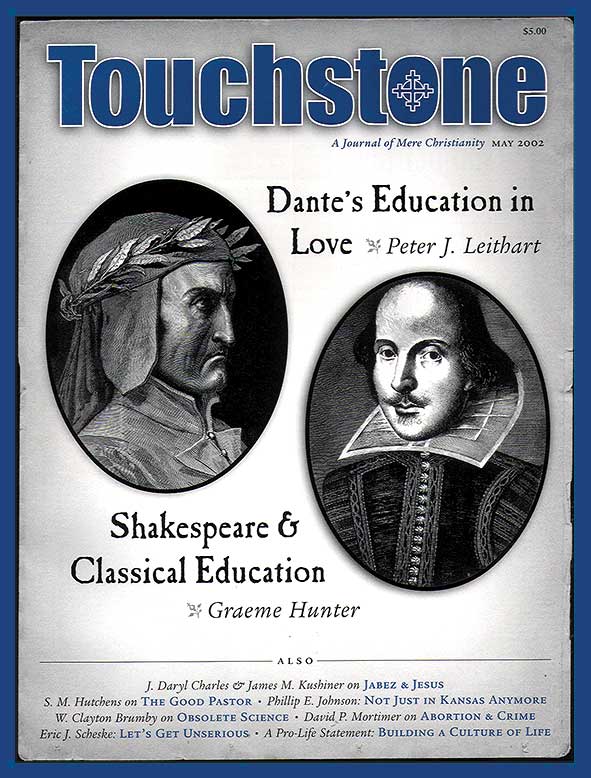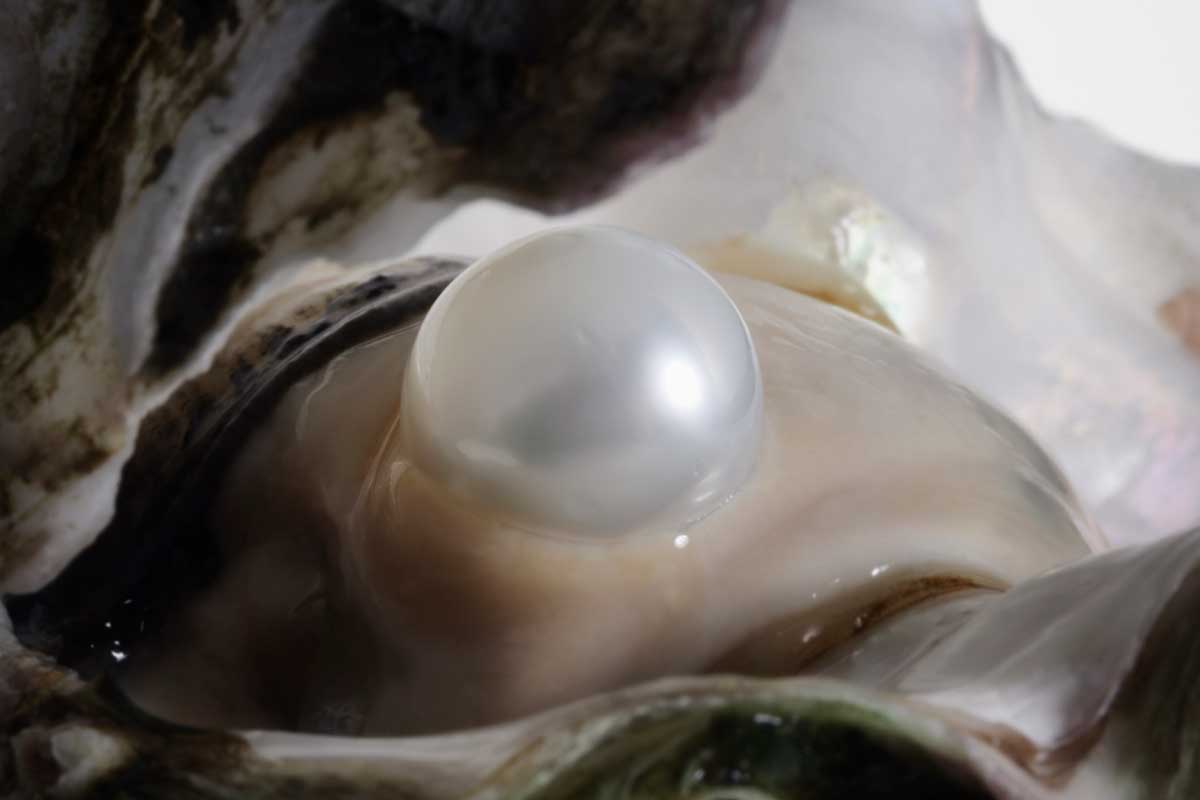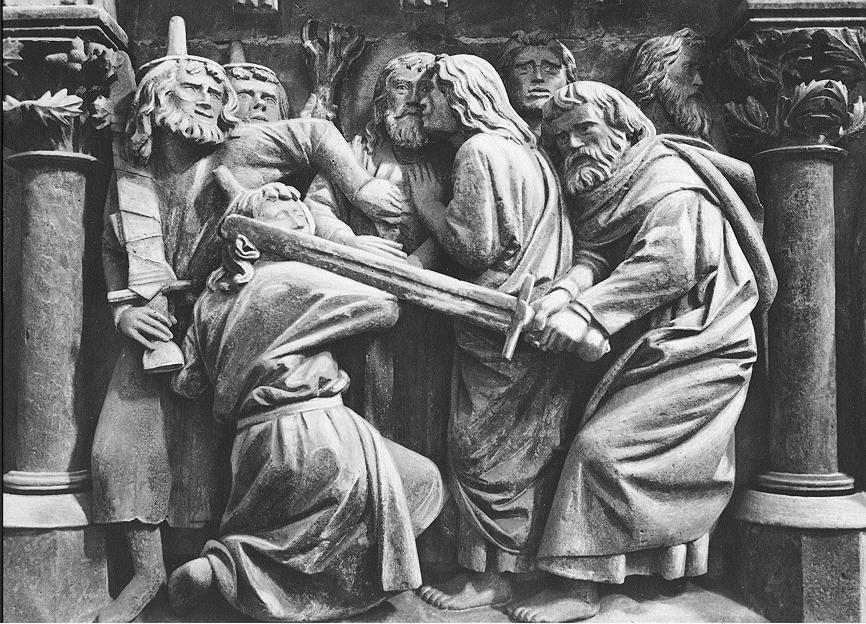Feature
Taming the Tempest
The Meaning of Classical Education
by Graeme Hunter
The idea of education is only one motif in Shakespeare’s Tempest and yet almost every line of the play is fragrant with it. Most of what I have learned in a lifelong love affair with education I find reflected there.
Like a proper education, the Tempest’s redemptive tale matures over many years. Though the dramatic action takes place in a single afternoon, the audience is made aware of 12 crucial years of dramatic time, background history without which that afternoon’s events would be unintelligible. At the close of the afternoon, all that history is redeemed, and the play, like a graduation exercise, points forward in anticipation of a better future. We must acquaint ourselves briefly with the Tempest’s strange chronicle before we can understand its educational significance.
The central character of the Tempest is Prospero, Duke of Milan, who, 12 years prior to the play’s events, had deputized his brother Antonio to govern Milan in his stead. Prospero’s reason for entrusting the government to his brother was a selfish, though not otherwise ignoble, one. He wanted to devote himself entirely to the occult arts, to white magic, with which, like many of his Renaissance contemporaries, he was fascinated. His brother Antonio, on the other hand, was a Renaissance man of quite another stamp, in the image of the infamous philosopher Machiavelli, whose book, The Prince, was the guidebook for despotic rulers.
Antonio was interested only in power and was intoxicated with the possession of it. He therefore conceived a plan for betraying and supplanting his brother, and, at a burdensome cost to the free duchy of Milan, he enlists the military help of King Alonzo of Naples in carrying it out. Forever after, Milan agrees to pay tribute to Naples. At that steep price, Antonio secures Alonzo’s cooperation, and Prospero, the rightful duke, is overthrown.
The conspirators are aware, however, that they dare not kill Prospero and his infant daughter, Miranda, for fear of causing a popular uprising. Therefore, they charge a trusted Neapolitan counselor, Gonzalo, with the task of disposing of the former duke and his daughter. Gonzalo, as it turns out, is both merciful and wise. Hence, although he carries out his charge of banishing the former duke of Milan, he does so with more humanity than they had intended. Regretfully, he puts the exiles into the unstable boat that has been provided for them, but he does not leave them in the full destitution that had been planned. Instead, he gives them sufficient clothing and food to make survival possible, and, most important of all, he provides Prospero with the magic books for which he had sacrificed his dukedom.
Helped by providence, their boat drifts on to an enchanted Mediterranean island. Prospero there encounters and subdues by magic certain good spirits, of whom the chief is Ariel, and an evil monster called Caliban. At first, Prospero befriends the monster and tries to educate him, but after Caliban attempts to rape the sorcerer’s daughter, Miranda, he is treated as a slave. Prospero dwells on the island as its master for 12 years and devotes his time to magic and to the education of Miranda, who, at 15 years of age, is a paragon of innocent beauty.
Meanwhile, in the great world of Europe, Claribel, the daughter of Alonzo, becomes engaged to the king of Tunis, and a royal party sails from Naples and its now vassal state, Milan, to attend her wedding to the African prince. On the return voyage, the ship carrying Alonzo, Antonio, and their entourage passes close to Prospero’s island, and the sorcerer, discovering this fact by his magic art, causes a storm to sweep the ship off course and wreck it on the island’s reef. With this tempest, the action of the play begins.
The occupants of the ship reach shore in different places, each individual or group assuming the others drowned. In the course of his adventures on the island, each man is given an opportunity to reveal his true nature. Evil men are shown to be prisoners of their character, moving inexorably toward greater degradation. Good men are able to grow in goodness through self-denial and discipline. In particular, King Alonzo’s son, Ferdinand, is purified by the discipline that Prospero imposes on him and so becomes fit for betrothal to Miranda at the play’s end.
But in addition to such natural developments of character, Prospero, by his magic art, is able to intervene secretly and effectively in the cause of good, with the result that no evil event on the island is exactly what it seems. Actions that are evil in intent are turned to good effect, and in the end, reconciliation and forgiveness are exchanged among all (except, perhaps, Caliban). When harmony has been restored, Prospero gives up his occult powers so as to sail back with the others to Milan, resuming the political responsibilities he ought never to have let go.
Like all of Shakespeare’s great plays, this one means nothing less than everything. Do not look in it for coded messages about Shakespeare’s life or prejudices. Any you find are just your own inventions. The Tempest advocates no ideology; it pursues no social or political agenda. It is great art and therefore (pace postmodern criticism) nothing but a mirror in which are reflected truths about the world and about ourselves. But Shakespearean art is an enchanted mirror, for it reflects things not as they try to appear, but as they really are.
No doubt the Tempest never sets out to discuss education. It is only about education because it examines so tenderly and profoundly the development of a young girl. Prospero is the great teacher and Miranda the ideal pupil. The island is their school, and like every school, it is also a theater in which a dramatic struggle is enacted between benign forces (like Ariel) and forces of darkness (symbolized by Caliban). Light and dark, good and evil, edification and destruction all vie for supremacy in the island as they do in the hearts of the characters, while the teacher Prospero, like a gardener, seeks to cultivate the good and suppress the bad. The Tempest was likely Shakespeare’s last play. It contains a mature vision of how teaching and learning ought to be adjusted to one another and to the difficult environment of a fallen world. As I look into the play’s polished mirror, I see there six deep truths about education.
You Can’t Win Them All: Caliban
One of the big questions in education today concerns who ought to get it. The code word is accessibility. Should schooling be for everyone? To say that there are people who cannot profit from school is thought by many to be undemocratic. They call it “elitism.” School is a universal right, we are all supposed to believe.
But Caliban is ineducable. Prospero calls him “a devil, a born devil, on whose nature nurture can never stick; on whom my pains, humanely taken, all, all lost, quite lost.” And Miranda calls him an “abhorred slave, which any print of goodness will not take, being capable of all ill.”
Miranda and Prospero agree, then, that an individual can be evil in a way that puts him beyond the redemptive power of education. Are they right about this? If so, what makes it so? It is certainly not stupidity. Caliban knows what is expected of him. His defect lies elsewhere—in the will. What makes some people ineducable is that they hate what is good, including what Dante called “the good of the intellect.” Caliban betrays his real nature when Miranda reminds him of how she once taught him to speak. “I endowed thy purposes with words that made them known,” she says. But Caliban replies:
You taught me language; and my profit on’t
Is, I know how to curse. The red plague rid you
For learning me your language!
One of the greatest ornaments of a good education is to learn proper speech, but Caliban despises it. And in his contempt for language he shows that one can become so comfortable with what is ugly, mean, and low, that it becomes one’s standard. Education is an invitation to climb a mountain. There are only two possible responses. You must either begin climbing or declare that the valley in which you were born is just as good. But the implication is obvious. A good education can only be acquired by people who are seeking goodness. The only things bad people are capable of getting are diplomas and degrees.
Not that many people with Ph.D.s in education might not argue on Caliban’s side. They might say, for example, that English grammar is nothing but an imposition by upper classes on the lower classes, or by white folks on folks of other races, or by natives on immigrants, and so on. Having no eye for beauty or sense of propriety, they think that education is only a question of power. Whatever calls for discipline must therefore be some form of repression. Such people often have degrees, but they lack education. The good of the intellect has eluded them.
Is education therefore undemocratic? Not a bit. Whosoever will may come, but wise educators recognize that there are some who will not come. Caliban represents something shiftless, self-regarding, and malignant that is part of each of us, though it is dominant in only a few. And educators like Prospero will find their “pains, humanely taken all, all lost, quite lost,” if they try to educate Caliban. Classical education, therefore, is not for all, since not all will accept its universal invitation.
Discipline Is a Universal Need: Miranda
Another image represented on the burnished surface of the play is that of a beautiful and innocent-seeming girl, Miranda. Her name means “she who must be admired,” and indeed she must, because she has become wiser than most princes, generous and beautiful in her mere 15 years. And yet even her wise simplicity of character is insufficient preparation for the fallen world into which she is about to be introduced. Classical education has always recognized that everyone, even those of the sweetest nature, needs what it has to offer, though some refuse it.
Contemporary educators also recognize the insufficiency of innocence. They are always speaking about “street-proofing” children. By this they usually mean introducing children to the sexual habits and drug dependencies of perverts and addicts. They claim that their classes will work on the principle of inoculation, injecting a little of the disease so that immunity can develop. The ways in which this view is wrong and shallow are a vast subject, best left for another day.
Prospero, at any rate, sees more deeply. Inoculation cannot help Miranda because even she already has the disease. She is not in danger only from violent external forces like Caliban, who tried to rape her when she taught him language. Prospero recognizes that she is also in danger from Ferdinand, who loves her, and even from herself. The fall is in her no less than in the man she would have for her husband. Prospero sees in the love that develops between Miranda and Ferdinand an ambiguous thing, containing the seeds not only of joy and blessing but also of bitterness and the curse. His stern instructions to them are not fanatical fetters, imposed by some Victorian prude. But they are standards, on which he will not compromise, as the permissive 1960s taught my generation to do. Prospero aims at the golden mean between prudery and permissiveness, which is discipline.
How little he resembles the sex-educators who abound in our modern schools. He gives his daughter to Ferdinand, but with this instruction:
If thou dost break her virgin-knot before
All sanctimonious ceremonies may
With full and holy rite be minister’d,
No sweet aspersion shall the heavens let fall
To make this contract grow; but barren hate,
Sour-eyed disdain and discord shall bestrew
The union of your bed with weeds so loathly
That you shall hate it both.
Such words strike even the most traditional of us as quaint today, but “barren hate, sour-eyed disdain and discord” make a fair description of many of the marriages of this permissive age, especially the growing number that end in divorce. Prospero’s harsh words are either cruel falsehoods, as the sexual revolution of the 1960s maintained, or are true. And if true, then they reveal another fact that has always been recognized by classical education: Discipline is a universal need; innocence is not sufficient.
Submission, Not Creativity: Ferdinand
Some of today’s educators would disagree with Prospero’s stern admonition to Ferdinand, not because they encourage sexual license in particular, but because they dislike whatever sounds “repressive.” They think that children are geysers of creativity that will naturally come gushing forth if only the artificial impediments of society are removed. They would like us to accept a simple division of things: On the one hand we have free-flowing creativity; on the other, repressive social restrictions. Just remove the repressive rules, revoke the crazy commandments, they say, and the fountain of creativity will pour forth its copious gifts.
This theory is very attractive, because it is easy to understand and generous in its view of human character. But it is also very wrong. It arose in the nineteenth century along with the psychological theories of Sigmund Freud and utterly triumphed in educational theory in the twentieth century. To begin to see what is the matter with the theory of “creativity,” ask yourself this question: In what other arena of life—other than school—do we find it to be true that removing disciplinary restrictions improves “creativity”?
There is a story of a man who watched his neighbor put in a new garden all summer. When it was finished, and color cascaded from tasteful trellises and ornaments, and every prospect gratified the eye, the neighbor remarked, “It’s a fine thing that you and Mother Nature have created.” “I’m glad you like it,” replied the gardener dryly, “but you should have seen it when Mother Nature had it all to herself.”
Or what about sports? Nature endows some people with astonishing gifts of speed, agility, balance, strength, and so on. And yet only those whose gifts are honed by disciplined practice go far as athletes. Those who rely on creativity alone are useful only for warming the bench.
Now why would what is true of gardening and athletics not also be true of life as a whole? One of the fundamental assumptions of classical education, at any rate, is that the cases are exactly parallel. And since classical education is education for life, not merely for learning, it cannot be separated from submission to rules.
Modern education, therefore, has it all wrong. We need not choose between unfettered creativity and repressive rules any more than we are forced to choose between a patch of weeds and a pesticide-drenched lawn. Our life should be neither weedy nor sterile; it should be a garden, a place in which weeds are repressed and flowers encouraged. But that requires discipline. A classical education guides nature without thwarting it. Submission to the rules of art, not creativity, is education’s chief concern.
Rags & Riches: Stephano
The scene shifts once again in the mirror of the Tempest, and now the drunken butler Stephano is reflected. Having decided to be king over all the island, he puts himself in league with the monster Caliban and the clown Trinculo. Their plan is to kill Prospero and so seize power. They fail, of course, but the play explains their failure by means of an insightful image.
When Stephano and his ridiculous subordinates stumble upon a rack of royal clothing, which Prospero has cleverly left in their way, they forget their bloodthirsty errand and fall to preening and prancing and quarrelling with one another about who looks best in what. Though seeking riches, they are led astray by rags. Behind their foolishness is a lack of understanding: They seek power, but cannot tell the difference between its outer appearance and the inward reality.
In a symbolic way, their confusion points toward something fundamental: Classical education aims to get beyond appearances to the underlying, and often hidden, reality. Stephano is content to strut about in the robes of office, not knowing that real power resides only with those who, like Prospero, possess authority.
Some students are like Stephano. They thunder uncomprehendingly through the corridors of schools until they at last are granted a degree. Wrapping themselves in the appearance of learning, they say goodbye to education and go forth to seek a commanding position in the world. In the children’s film The Wizard of Oz, the scarecrow wants something no wizard can give—the power to think. So resourceful Oz gives him a diploma instead, and the scarecrow, foolish as ever, is content. Perhaps the movie should receive a “Restricted” rating for letting slip that cynical truth about much of what calls itself education.
Classical education knows nothing of diplomas, except in a secondary way. Real education involves acquiring an appetite for excellence, or what the ancients called “virtue,” and allowing it to transform your soul. No degree need be attached to that achievement. And people with many degrees sometimes have not attained it. They may be what the philosopher Immanuel Kant called “a plaster cast of a man,” people who have all the facts at their fingertips but are strangers to truth, who are long on information but short on judgment, who may know many things yet are not wise.
If we are honest, we can see ourselves in Stephano the drunken butler. We, too, rush headlong down byways looking for wealth, prestige, and power. And all too often we settle for even less, for trashy imitations of these things. But a classical education teaches us to have a healthy skepticism of any shortcut to wealth, prestige, or power. It makes us suspect any path that does not include the long route of moral discipline. Classical education knows the difference between rags and riches.
Aiming at the Long Term: Gonzalo
Look into the mirror of the Tempest and you see a long stretch—12 years of dramatic time. And not just any 12 years. They are the years of Miranda’s primary education. The play implicitly recognizes real education as an extended season of growth and cultivation, whose rich harvest must be patiently awaited.
“The best fruit ripens last,” said the philosopher Schopenhauer, when speaking of the education of boys. Boys may be obstreperous, undisciplined, nasty, foolish, and hopeless at school. The ancient philosopher Plato called them “muddy streams that have not yet run pure.” And yet some of those very boys will grow up to be saints, thinkers, or poets, proving, as Schopenhauer said, that “the best fruit ripens last.”
But the tardy development, particularly of boys, puts education at a distinct disadvantage compared to certain recent pedagogical tools such as Prozac and Ritalin, which can instantly transform rowdy students into docile learners. But here, once again, appearance gets the upper hand over reality. Classical education recognizes that we are dealing with human souls, each of which is like a docile carthorse yoked together with a plunging stallion. Drug the stallion and you extinguish the soul’s energetic fire. A child requires not sedation but discipline. Each one must learn to master the horses that draw the chariot of his soul, and that process should be expected to take some time.
In the Tempest’s closing scene, the good old counselor Gonzalo suddenly realizes the long lapse of time required for his own education. All the characters are assembled in front of Prospero in a scene resembling the Day of Judgment. Both good and evil deeds are now laid bare, and Prospero is merciful yet unsparing in his judgment of each man before him. Suddenly Gonzalo realizes that the entire voyage on which they had set out, though it had been conceived without any thought of Prospero’s island, has found there its fulfillment. And suddenly we, the audience, are made to consider the voyage of our lives.
The old man’s vision is one of the finest moments in the play:
O rejoice
Beyond a common joy! and set it down
With gold on lasting pillars: in one voyage
Did Claribel her husband find at Tunis
And Ferdinand, her brother, found a wife
Where he himself was lost, Prospero his dukedom
In a poor isle, and all of us ourselves
Where no man was his own.
Prospero’s “poor isle,” where each man finds himself, is a school.
It was Socrates who first pointed to the connection between education and self-knowledge. “The unexamined life,” he said, “is not worth living.” What use is a degree, a job, a paycheck, a career, an office, unless there is a real human being behind it? You might as well wish that someone else would obtain these things as to obtain them yourself and still have no personality. On the little island of school, or on some other island, sooner or later, the great question must be faced: Who am I? That is what school is for. That is the surprise examination with which your courses end, and only those prepared to wrestle with that question ever really graduate. That is why real education aims at the long term.
Now what about this business of graduation? It is a sore point with educators like myself. It is the thing that students learn to do every year and teachers never. We often envy the students we send out into the world, always staying behind ourselves, like elderly invalids, looking at life through a window. But in the end, even teachers must graduate, and I turn at last to thinking about how Prospero did it.
Packing It In: Prospero’s Farewell
The image of the Tempest is beginning to fade, the enchanted mirror will soon reflect nothing but the sky. The play is nearly at an end when Prospero comes to center stage to take his farewell from his spellbound isle. Soon he will become an active participant in the life of Milan, and this time he will be meticulous in performing his duty, the neglect of which has caused him to be exiled on this island for many years.
Like Shakespeare himself, Prospero has grown old as an observer of life, and he now must enter into the practice of living, putting aside the magic by means of which his entry into life has been deferred. Again, like Shakespeare himself, Prospero must retire from his magical life to enter a moral one. Is it then Shakespeare the dramatist or Prospero the teacher whose retirement address the Tempest records? It is both, for it acknowledges the different spiritual helpers by whose magic teachers, no less than dramatists, are able to do their work:
Ye elves of hills, brooks, standing lakes, and groves;
And ye that on the sands with printless foot
Do chase the ebbing Neptune; and do fly him
When he comes back; you demi-puppets that
By moonshine do the green sour ringlets make,
Whereof the ewe not bites; and you whose pastime
Is to make midnight mushrooms, that rejoice
To hear the solemn curfew; by whose aid
Weak masters though ye be—I have bedimmed
The noontide sun, call’d forth the mutinous winds
And ’twixt the green sea and the azur’d vault
Set roaring war: to the dread rattling thunder
Have I given fire, and rifted Jove’s stout oak
With his own bolt; the strong-based promontory
Have I made shake, and by the spurs plucked up
The pine and cedar: graves at my command
Have wak’d their sleepers, op’d, and let ’em forth
By my so potent Art.
That’s what we teachers do, is it not? It is at least what we try to do. And if students think our classes are less exciting than that, don’t we remind ourselves of the point about taking the long look? We hope that years from now, looking back, students will remember school as the place where the graves opened and released their dead—where they saw Alexander once again establishing his empire; where they witnessed the love of Romeo and Juliet; and where they shared in Newton’s wonder as he discovered the law of universal gravitation. Each of us who loves to teach has some share of Prospero’s “potent art,” but a time approaches when we, like Prospero, must lay down the sorcerer’s mantle and walk away diminished into an uncertain future. How, then, does Prospero continue? With noble resignation, he says:
But this rough magic
I here abjure; and when I have requir’d
Some heavenly music—which even now I do. . . .
I’ll break my staff,
Bury it certain fathoms in the earth
And deeper than did ever plummet sound
I’ll drown my book.
The marvelous techniques we have acquired for bringing alive the past, and making vivid things that education requires us to know, are of no use in the prosaic world outside the school. They are the ladders that our students climb up, kicking them aside when they have served their purpose. And when finally we go out these doors, following so many generations of our students, we, too, must leave those faded props behind. And here I am speaking not just of our retirement, but of every afternoon. We have obligations to fulfill to family, state, and God. And we must go in spirit to Prospero’s Milan, where, he says, “Every third thought shall be my grave.”
The Greek language distinguishes kairos from chronos, the golden moment, from mere passing time. Prospero’s art taught him to calculate that moment, and then to create the tempest by which he could deliver his student Miranda to her fortune and himself to his duty. But the moment was deeply touched with sadness, and more than art was required to make him seize it; he needed courage.
Learning, of course, goes on forever. But classical education recognizes an opportune moment to begin one’s formal education and another one to end it, for education that does not issue in a good life is vain. Classical education, therefore, has to teach us what Prospero learned, the difficult art of knowing when to pack it in, whether at 4 p.m. daily, after earning a B.A. or a Ph.D., or once in a lifetime at retirement. Even those who scribble essays must finally make an end. Prospero shows us how, in simple words, colored by deep melancholy and spoken in front of the curtain, after the play:
Now my charms are all o’er thrown,
And what strength I have’s mine own,
Which is most faint: now, ’tis true,
I must be here confined by you,
Or sent to Naples. Let me not,
Since I have my dukedom got,
And pardon’d the deceiver, dwell
In this bare island by your spell;
But release me from my bands
With the help of your good hands:
Gentle breath of yours my sails
Must fill, or else my project fails,
Which was to please. Now I want
Spirits to enforce, Art to enchant;
And my ending is despair,
Unless I be relieved by prayer,
Which pierces so, that it assaults
Mercy itself, and frees all faults.
As you from crimes would pardon’d be,
Let your indulgence set me free. •
A version of this essay was read to the faculty and students of Logos Academy, in Dallas, Texas.
Graeme Hunter is a contributing editor to Touchstone and Research Professor of Philosophy at Dominican University College in Ottawa. He is the author of Radical Protestantism in Spinoza's Thought (Ashgate).
subscription options
Order
Print/Online Subscription

Get six issues (one year) of Touchstone PLUS full online access including pdf downloads for only $39.95. That's only $3.34 per month!
Order
Online Only
Subscription

Get a one-year full-access subscription to the Touchstone online archives for only $19.95. That's only $1.66 per month!
bulk subscriptions
Order Touchstone subscriptions in bulk and save $10 per sub! Each subscription includes 6 issues of Touchstone plus full online access to touchstonemag.com—including archives, videos, and pdf downloads of recent issues for only $29.95 each! Great for churches or study groups.
Transactions will be processed on a secure server.
more on education from the online archives
more from the online archives

24.6—Nov/Dec 2011
Liberty, Conscience & Autonomy
How the Culture War of the Roaring Twenties Set the Stage for Today’s Catholic & Evangelical Alliance by Barry Hankins
calling all readers
Please Donate
"There are magazines worth reading but few worth saving . . . Touchstone is just such a magazine."
—Alice von Hildebrand
"Here we do not concede one square millimeter of territory to falsehood, folly, contemporary sentimentality, or fashion. We speak the truth, and let God be our judge. . . . Touchstone is the one committedly Christian conservative journal."
—Anthony Esolen, Touchstone senior editor












